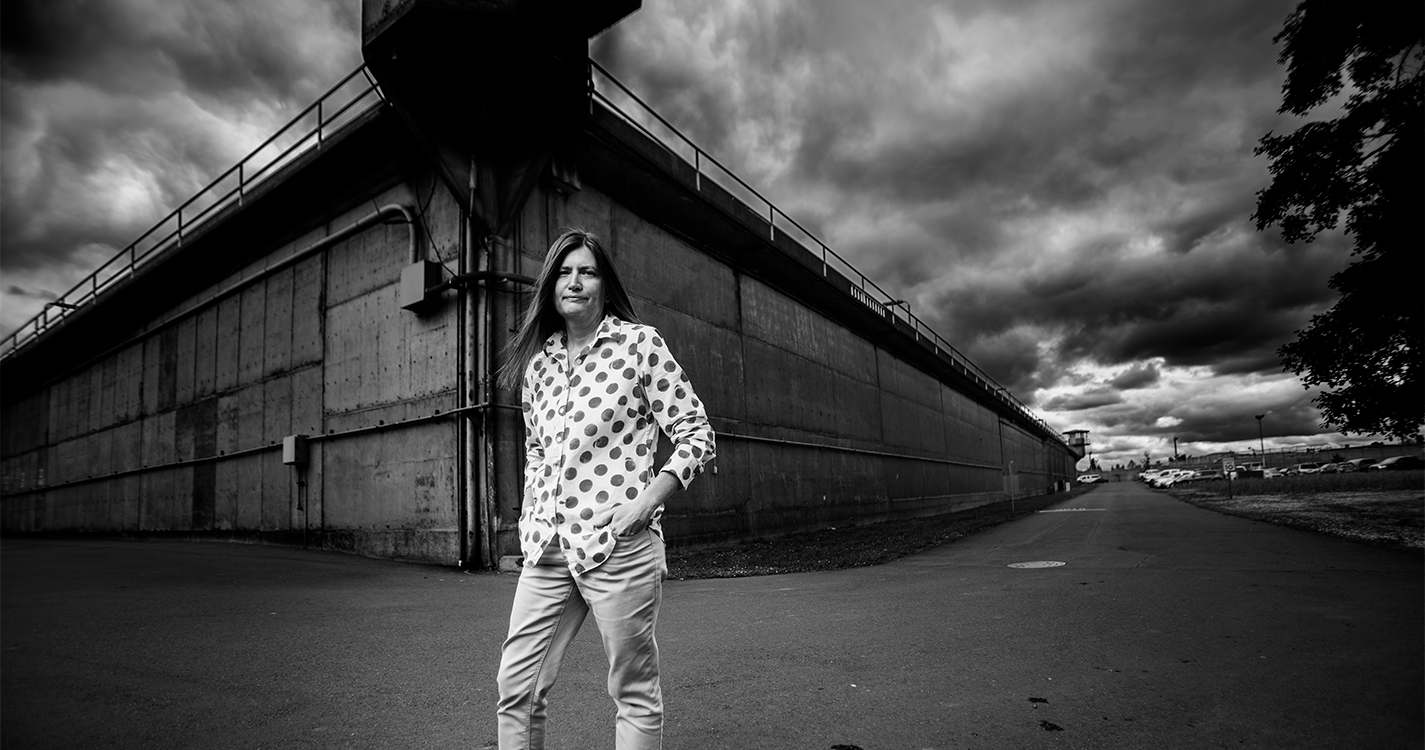A transformative Willamette University class held at the Oregon State Penitentiary (OSP) is on its way to gaining national exposure.
“Reforming Criminal Justice,” taught by Professor of Politics Melissa Buis Michaux, will be prominently featured in a yet-to-be titled documentary on redemption.
Following several incarcerated men who participate in a restorative justice program, the documentary will capture the sometimes emotionally-charged discussions between Willamette students and the adults in custody who examine the crisis of mass incarceration and what can be done to improve it.
Directed by Lydia B. Smith, the six-part series considers current issues of crime and punishment and introduces viewers to incarcerated men “who are coming to terms with the crimes they’ve committed and who are on a quest to construct a purposeful life, even within the confines of prison.”
Smith observed one of Michaux’s classes and was mesmerized. Smith listened as students — incarcerated and not — were presented with a scenario: a baby was shot dead in a car because the killer had mistaken the vehicle for another gang member’s. What does justice look like here?
A Willamette student said the killer deserves to die or deserves the death penalty, while an incarcerated student had a different perspective. “He said, ‘You know, 20 years ago I would have agreed with you, but now I know that violence never changes anything. It just perpetuates the cycle,’” recalled Smith. “‘The only thing that really changes people is through dialogue.’ It was such an amazing moment.”
Smith and her crew have filmed the class a number of times and plan to capture additional footage throughout the semester.
Michaux, who has offered the class since 2016, says it’s important for the broader public to see the incredible talent, skills and potential of incarcerated men. The U.S. system is broken, she said, and while there’s growing recognition of that fact, she hopes the film spurs people to think about alternatives to incarceration.
“It’s really about thinking through how we can transform both individuals and systems, and how to generate ideas for that kind of transformation,” she said. “It’s not just an analysis of what’s wrong — it’s also about what we can all do about it.”

